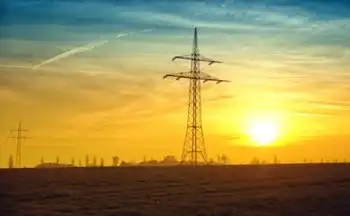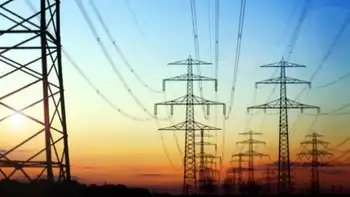Congress Struggles Over Energy Plan
WASHINGTON - -- As the Bush administration fans out to sell its energy program in town hall meetings across the country, Congress set out Tuesday to write its own plan.
A key committee in the House of Representatives fended off efforts to block oil exploration in the Alaskan National Wildlife Refuge. But President Bush's plan to drill for oil there still appears to face a tough test in the full House and almost certain defeat in the Senate.
Another House committee wrestled inconclusively with proposals to increase mileage standards for sport utility vehicles and small trucks. Republicans and Democrats clashed over how high the fuel-efficiency requirement should be and how gradually the higher standards should be phased in.
Meanwhile the Senate, matching an earlier House decree, unanimously agreed to block new oil drilling under the Great Lakes in 2002 and 2003. House and Senate Republicans generally have embraced President Bush's energy policy, with its emphasis on increasing fuel production and its late-blooming attention to conservation and alternative fuels. But Tuesday's developments illustrate that Congress is likely to devise its own policy -- one that reflects the public's fading sense of urgency about energy, lawmakers' political needs back home and the partisan split between the Republican- controlled House and the Democratic-controlled Senate.
Gasoline prices have dropped after spiking in the spring and fears of electricity blackouts, such as those in California, have subsided. That has called into question the Bush administration's earlier assertions that the country was in an energy crisis. But Republicans and Democrats alike say a long-term energy policy is crucial to curb American reliance on foreign oil and volatile energy costs.
"Just because gasoline prices have dipped slightly doesn't mean that we don't have to have an energy policy for our country," said Sen. Kay Bailey Hutchison, R-Texas. "We cannot continue to ignore the bigger picture; that we do not have sufficient supply, we don't have distribution systems and we don't have . . . a real energy policy for energy self- sufficiency in our country for the long term. "
While the debate is under way, energy companies and corporate trade associations are pushing Bush's plan in a burst of radio, television and print ads. They tout expanded domestic oil and gas production, more pipelines and new power grids. One prominent group, the Alliance for Energy and Economic Growth, includes some of the biggest donors to the Republican Party.
Against that backdrop, the House Resources Committee on Tuesday defeated 29-19 an amendment by Rep. Edward Markey, D- Mass., that would have barred oil and gas exploration in the Arctic National Wildlife Refuge. Drilling in the refuge is one of the Bush energy plan's key components.
The House legislation would open 1.5 million acres there to exploration, but would require assurances that any oil extraction would have no "significant adverse effect" on the environment. Opening the refuge is the most controversial aspect of the Bush plan, and even if it survives the House, it does not appear likely to pass the closely divided Senate. "It's a unique national wonder that should be preserved," Markey said, noting that the refuge is a destination of migratory birds and herds of caribou and that the legislation would end its "pristine, wilderness condition."
That prompted a sharp retort from Rep. Don Young, R- Alaska, who argued that oil exploration would be unobtrusive in such a large expanse. "My biggest challenge today is not crying or laughing," he said, then asked Markey if he had ever been to the refuge. "He's never been there and doesn't know what he's talking about," Young said.
At the same time a block away, the House Energy and Commerce Committee was writing its "Energy Advancement and Conservation Act." But the panel put off the mileage standards for SUVs and light trucks, one of its most contentious issue, until Wednesday.
Committee Chairman W.J. "Billy" Tauzin, R-La., and Rep. John Dingell, D-Mich., offered a bipartisan compromise on the mileage standards that would require automakers to make SUVs that consume 5 billion gallons less fuel in model years 2004 through 2010.
Markey is seeking tougher standards that would require SUVs to improve to 40 miles per gallon by 2017. SUVs currently must meet a fleet-average standard of 20.7 miles per gallon. The average fleet standard for automobiles is 27.5 miles per gallon.
"There are some who would like us to go much further," Tauzin said. "Others would prefer that we not legislate in this area at all. I think we have found the right balance."
Related News

Electricity bills on the rise in Calgary after
CALGARY - Calgarians should expect to be charged more for their electricity bills amid significant demand on the grid and a transition to above-average rates.
ENMAX, one of the most-used electricity providers in the city, has sent an email to customers notifying them of higher prices for the rest of the winter months.
“Although fluctuations in electricity market prices are normal, we have seen a general trend of increasing rates over time,” the email to customers read.
“The price volatility we are forecasting is due to market factors beyond a single energy provider, including but not limited to expectations for a colder-than-normal winter…




